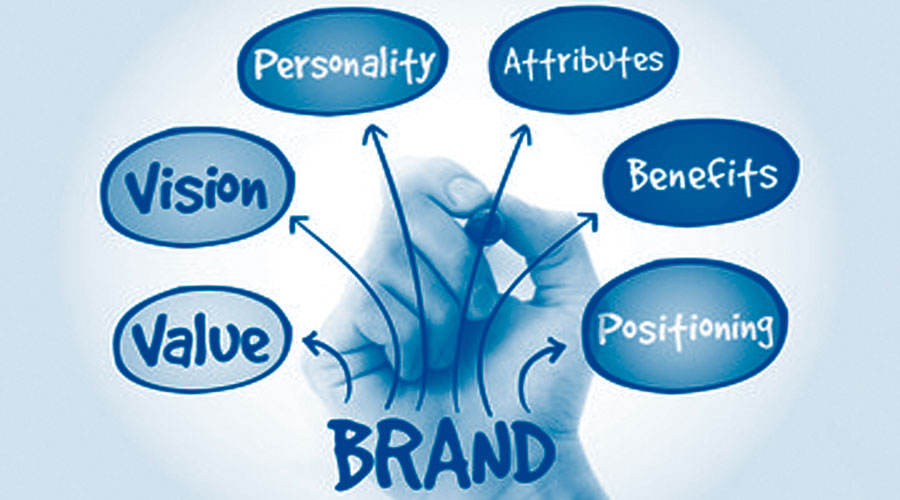In part 2 of this series, we’ll explore how to develop a business brand personality, including some specific tools that are useful for diving in to the process.
Remember, brand personality is a set of identifiable, customer-facing characteristics that are associated with human traits, attributes and behaviors. It encompasses emotional, thought, and behavioral patterns unique to a brand that are consistent over time. Brand personality is developed and honed during the brand strategy process and it has value for the brand and its consumers.
An individual’s personality helps express who they are and how they want to present themselves to the world. Brand personality, in contrast to brand perception for example, is an aspect of brand identity that the business or organization gets to choose for themselves. A brand’s personality tells us about itself, its values, its beliefs, how it sees itself relative to others. A brand’s personality also tells us about the relationships it wants to have with other brands/businesses and the relationships it wants to have with competitors and consumers/customers. All of this may be summed up by saying:
Personality is Positioning!
A brand’s personality helps position it within a competitive market. This positioning is vital for consumers who are wading through a deluge of marketing messages and have to make thoughtful choices between many brands with similar features and benefits. Diligent customers will most often choose the brand with the personality (communicated through a number channels) that resonates with them the most.
For example, a competitive brand that aggressively touts its superiority is not interested in collaborative relationships. It is more likely to utilize or build systems and technology that is proprietary or does not intentionally integrate well with other platforms. It wants customers who are staunchly loyal to its offerings. This “outsider” brand will be wise to market itself to consumers who adopt a similar “outsider” code or value system in their own lives.
Because brand personality is so important to driving consumer choice, it is not something that should be haphazardly developed. When considering where to begin with your organization’s brand personality, your mission and vision are a good place to begin for insight. This will give you a good starting point for clarifying the relationship your brand wants to have with its market, including consumers and competitors by shedding light on the who (do we touch) and the how (do we touch them) of your brand and its key relationship.
Tools to Develop Your Brand Personality
Brand personality cannot be created on a whim. Research and discovery are vitally important to the process. Stakeholder research (internal), client/customer research (external), competitive analysis and auditing of brand positioning and messaging are just some of the tools that can be used to analyze and optimize both the identity and impact of your brand’s personality. As a business owner, you may have hunches about what the essence of your brand personality is, but these tools provide a wealth of real-world data that provides insight into the veracity and viability of your brand personality.
Leveraging unique experience is another tool that can be used to develop brand personality. Just as an individual’s personality is forged through by that individual’s experience, in the same way, a brand’s personality is closely connected to the backstory of the business brand. For example, a company that came about after suffering rejection or being dismissed by competitors may likely adopt a rebellious, outsider or loner brand personality. Or, conversely, they may choose to adopt a very inclusive, upbeat brand personality, in an effort to make a statement about how they feel everyone should be treated or as a counter to their experience.
Evaluating Your Brand Personality
There are a number of approaches to unearthing a winning brand personality. Though it may seem scary to undertake, it is unquestionably insightful and eye-opening. Also, a business’ brand personality should fit the business. To evaluate a brand personality choice for fit, a few key questions you would do well to consider are these: If my brand were a person, how would this type of person:
- Behave (communicate and interact with the world)?
- Belong (develop or participate in community)?
- Believe (core values to live by and espouse)?
If your brand personality aligns with thoughtful, logical responses, then your brand personality fits and can be implemented. If there is misalignment, then your brand personality should be re-assessed as there is room for growth and opportunity to strengthen your personality/position. Once selected, you will use brand personality to inform communication and marketing efforts on all levels of your brand experience, including internally, on outbound marketing materials and digital brand experiences. Remember, personality is position, and a well-aligned brand personality positions a business for sustainable success. In our third installment in this series, we’ll examine how effective use of brand personality can help a business grow.







